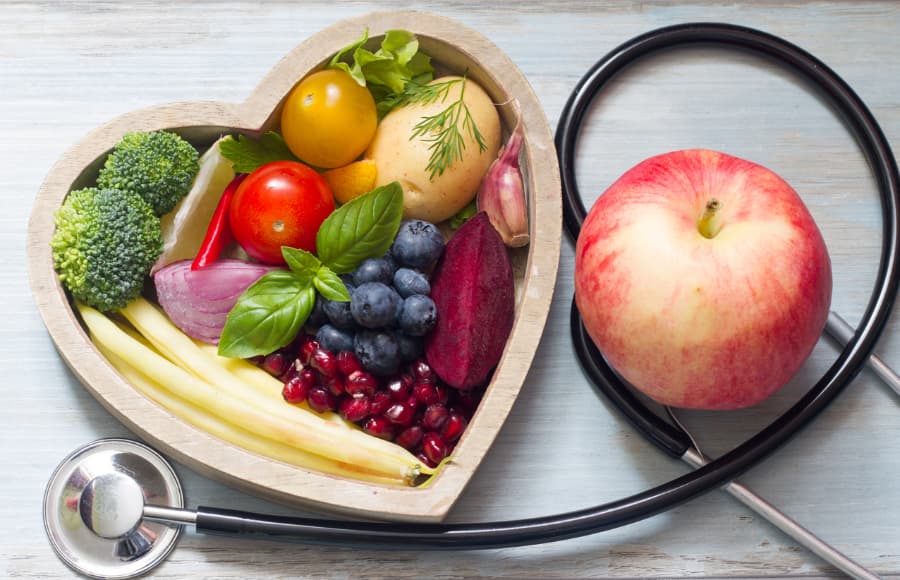Heart disease is a fact of life that affects one of four deaths. Although you may believe it’s not a problem but over time, unhealthy diets like those venti-flavored latte or desk-side snacks as well as late night pizza runs could cause elevated blood pressure and elevated cholesterol and inflammation, increasing your risk of having a stroke and heart attack.
So do your heart a favor. Switch out your old fashioned diet choices to heart-healthy options below. Here’s why they’ll keep your heart ticking healthy, as well as delicious ways to eat these delicious foods.
Whole Grains
It’s not a fact that whole grain is healthier in comparison to their processed, refined grain brethren. An analysis of recent 45 studies revealed that eating at least three portions daily of whole grains was associated with a reduction of 22 percent risk of suffering from heart disease. This is due to the fact that whole grain foods are abundant of antioxidants, phytoestrogens, and phytosterols, all of which help to prevent heart disease.
They’re also high in fiber, which is essential to heart health. In a Harvard study the women who followed the high fiber diet had 40% lower risk of suffering from heart disease than those who ate a low-fiber diet. The two best options for whole grains include barley and oats. They’re particularly high in fiber soluble, and can help reduce cholesterol levels.
Avocados
Blended in smoothies or mashed to be spread on toast Avocados are a delicious option to improve the health of your heart. They’re packed with healthy monounsaturated fats that are heart healthy, including oleic which is the same fat that offers olive oil its many benefits. However, it’s not the only thing. Avocados are an excellent food source for potassium an important mineral that many people don’t have enough of which can help lower blood pressure and reduce the chance of having a stroke. They’re also high in vitamins, and heart-friendly fiber, too. Are you convinced? A study published in 2023 revealed that avocados can help combat metabolic syndrome, which is a risky combination of illnesses that typically can lead to heart disease.
The Salmon & other Fatty Fish
A diet consisting of two or more servings of fish every week can result in an increase of 30 percent in the risk of developing coronary disease, research shows. Fish, particularly oily varieties such as tuna and salmon- are rich in omega-3 fats. They decrease the amount of triglycerides in the blood that could cause heart issues. Omega-3s also aid in lowering blood pressure, and may assist in preventing the irregularity of heartbeats. Which is the most effective fish? There is no common fish that provides more omega-3 fatty acids that salmon does than. Go for wild caught Alaskan salmon if you can. As opposed to the vast majority of salmon that is farmed is generally less polluting and calorie-rich and has higher levels of omega-3s. It’s also more sustainable for the environment.

Yogurt
Researchers examined data over the course of 30 years by over 55,000 females from the Nurses’ Health Study, as well as more than 18,000 males of the Health Professionals Follow-Up Study. The researchers found that those who consumed two or more daily servings of yogurt were at a 20 percent lower chance of having a stroke or heart attack as compared to those who consumed less. Incorporating yogurt into a healthy diet can boost the benefits by a significant amount.
Even if there isn’t hypertension, you’ll still reap the benefits of heart health. Yogurt is a great source of probiotics, living bacteria that play a crucial role in the health of your gut. In addition, they fight inflammation and keep blood pressure and cholesterol levels under control They ensure your heart is healthy too.
Leafy Green Vegetables
A myriad of research studies have shown that the more vegetables and fruits consumed more you are less likely to develop of developing heart disease. A meta-analysis of 2023 studies of nearly 470,000 people revealed that every additional portion of fruits and veggies reduced the chance of dying from heart disease by about 4 percent. The most popular fruits and vegetables that provided most benefit? In terms of calories, but rich in fiber. Leafy vegetables like the lettuce, spinach and kale provide vitamins and minerals vital for heart health. They’re especially rich in vitamin K, which is essential to ensure adequate blood clotting. A recent study that was quite surprising in teens has revealed that the absence of vitamin K can alter the heart’s structure and increase the risk of developing heart diseases later in the course of.
Beans
Regular consumption of beans is healthy for your heart health, and you don’t need consume a lot of them in order to reap the benefits. The study in Journal of Nutrition suggests that eating just a half teaspoon of pinto beans cooked every day could reduce cholesterol levels, due mostly due to their fiber soluble and heart-protective flavonoids, the same ones that are found in berries, chocolate and red wine. They can lower the risk of stroke and heart attack.
Nuts
Nuts are rich in minerals, vitamins and heart healthy monounsaturated fats and contain a low amount of saturated fats. Studies suggest that those who eat nuts such as pecans, walnuts hazelnuts, almonds, hazelnuts pine nuts, pistachios, and peanuts for two up to four days each week experience less heart disease than those who consume them less frequently. Is it important to choose the right kind? Certain researchers believe that walnuts are the best. the title. A study by University of Scranton in Pennsylvania. University of Scranton in Pennsylvania discovered that walnuts are rich in antioxidants of high quality than other varieties. Only just seven walnuts per day to reap the heart health benefits.
Dark Chocolate
Chocolate has received plenty of attention in recent years for its healthy treat for the heart. Cocoa is a great source of flavonoids, plant-based nutrients which help to repair cell damage. Flavanols, the most prominent type of flavonoid in cocoa, help reduce blood pressure and aid in proper blood clotting and improve circulatory flow towards the heart and brain. You can also add a substantial amount of fiber, minerals as well as other antioxidants that are potent, and you’ve got yourself a sweet package. The health benefits are astounding: In a study of more than 5,000 people who ate chocolate more than five times per week was linked with the utmost 57 percent reduction in risk of developing heart disease when compared with those who did not eat chocolate.
Apples
Consuming apples is associated with a lower chance of dying from cardiovascular and coronary heart diseases during the Iowa Women’s Health Study, which has followed over 34,000 females over more than 20 years. Also, Finnish researchers analyzing dietary data that were collected over the course of nearly 30 years of 9,208 men as well as women found that people who regularly eat apples were at the lowest risk of strokes when compared with people who do not consume apples.
Researchers have concluded that it’s because of the powerful antioxidant flavonoid substances found in apples. These substances play a crucial function in reducing inflammation and stopping the formation of plaques in the arteries. Apples are also high in pectin, which is a type of soluble fiber that has been proven to reduce cholesterol and also provide a good level of vitamin C. Vitamin C is another antioxidant.
Berries
In a brief Finnish research study of a small group of people in middle age eating under 1 cup of mixed berries including red raspberries, strawberries Bilberries, lingonberries and others of the native varieties every day for 8 weeks was linked to greater amounts of good HDL cholesterol and lower blood pressure. The varied mix of berries provided an array of polyphenols, plants which can increase levels of nitric oxide which helps to relax blood vessels and reduce blood pressure.








